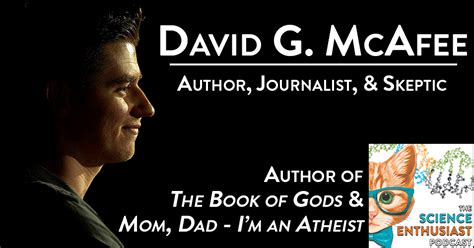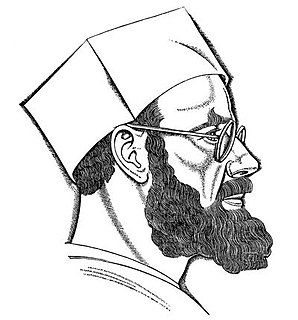A Quote by Baruch Spinoza
I do not know how to teach philosophy without becoming a disturber of established religion.
Quote Topics
Related Quotes
Without cultural indoctrination, all of us would be atheists. Or, more specifically, while many may dream up their own gods as did our ancestors, they would certainly not be ‘Christian’ or ‘Jewish’ or ‘Muslim’ or any other established religion. That’s because, without the texts and churches and familial instruction, there are no independent evidences that any specific religion is true. Outside of the Bible, how would one hear of Jesus? The same goes for every established religion.
I've been making a list of the things they don't teach you at school. They don't teach you how to love somebody. They don't teach you how to be famous. They don't teach you how to be rich or how to be poor. They don't teach you how to walk away from someone you don't love any longer. They don't teach you how to know what's going on in someone else's mind. They don't teach you what to say to someone who's dying. They don't teach you anything worth knowing.
Whilst no people appears in history without the sign and palladium of a positive faith, without temple, altar, priesthood--that is to say, without a constituted religion--unbelief appears only under an individual form, sometimes proscribed, sometimes tolerated, seldom powerful, and never becoming established as the public and social expression of a nation.
Subjective reason ... is inclined to abandon the fight with religion by setting up two different brackets, one for science and philosophy, and one for institutionalized mythology, thus recognizing both of them. For the philosophy of objective reason there is no such way out. Since it hold to the concept of objective truth, it must take a positive or a negative stand with regard to the content of established religion.
Many people entertain the idea that Christianity,like almost any other religion,is basically a system of beliefs-you know, a set of doctrines or a code of behavior, a philosophy, an ideology. But that's a myth. Christianity is not at all like Buddhism or Islam or Confucianism. The founders of those religions said (in effect), 'Here is what I teach. Believe my teachings. Follow my philosophy.' Jesus said, 'Follow me'(Matthew 9:9). Leaders of the world's religions said, 'What do you think about what I teach?' Jesus said, 'Who do you say I am?'(Luke 9:20)
Much that was called religion has carried an unconscious attitude of hostility toward life. True religion must teach that life is filled with joys pleasing to the eye of God, that knowledge without action is empty. All men must see that the teaching of religion by rules and rote is largely a hoax. The proper teaching is recognized with ease. You can know it without fail because it awakens within you that sensation which tells you this is something you’ve always known.
The essence of any religion lies solely in the answer to the question: why do I exist, and what is my relationship to the infinite universe that surrounds me? It is impossible for there to be a person with no religion (i.e. without any kind of relationship to the world) as it is for there to be a person without a heart. He may not know that he has a religion, just as a person may not know that he has a heart, but it is no more possible for a person to exist without a religion than without a heart.









































